Abstract
OBJECTIVES: This study examined the association between acculturation of Mexican-origin women and factors in low birthweight and preterm delivery. METHODS: Interviews were conducted with 911 Mexican-origin respondents in Los Angeles prenatal care clinics. Infant outcome data were retrieved from delivery records. RESULTS: Mexican-American women had generally more undesirable prenatal behaviors and risk factors than Mexican-immigrant women. Although higher acculturation was significantly associated with behavioral risk factors, there were no direct effects of acculturation on infant gestational age or birthweight. CONCLUSIONS: Future research needs to measure multiple factors to assess their effects on culture-specific protective factors.
Full text
PDF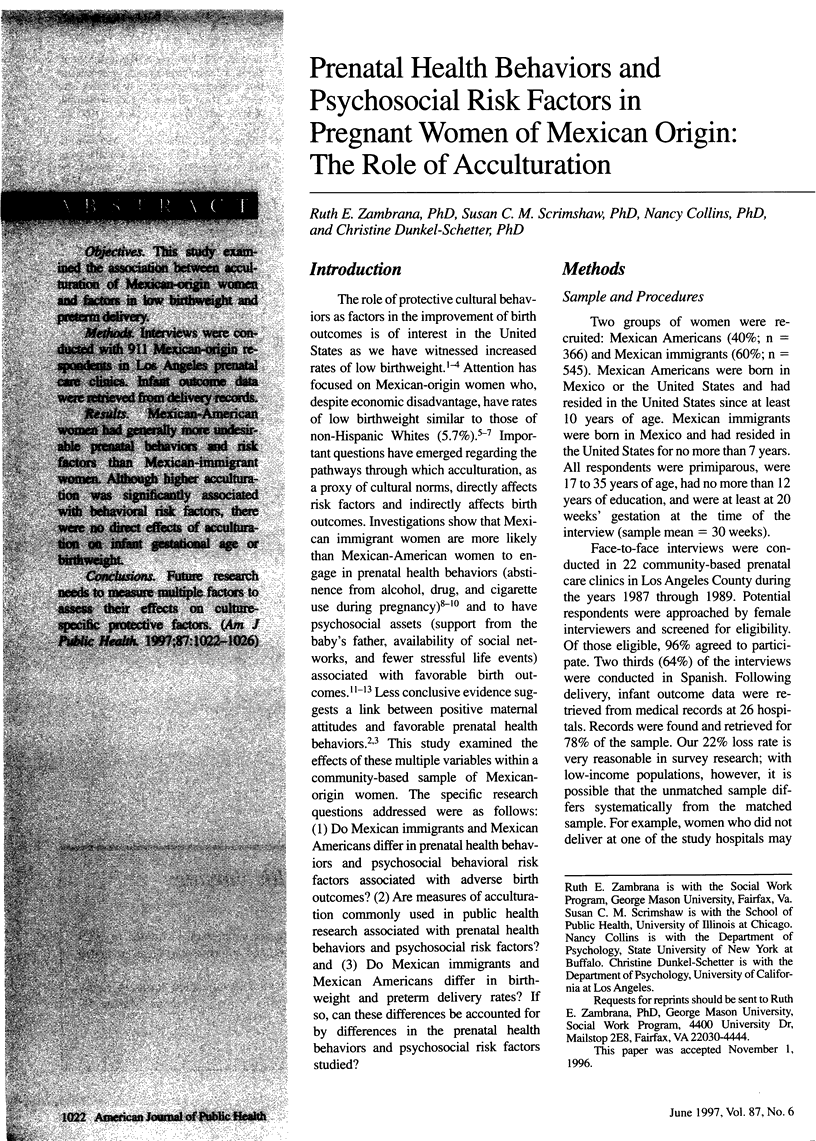
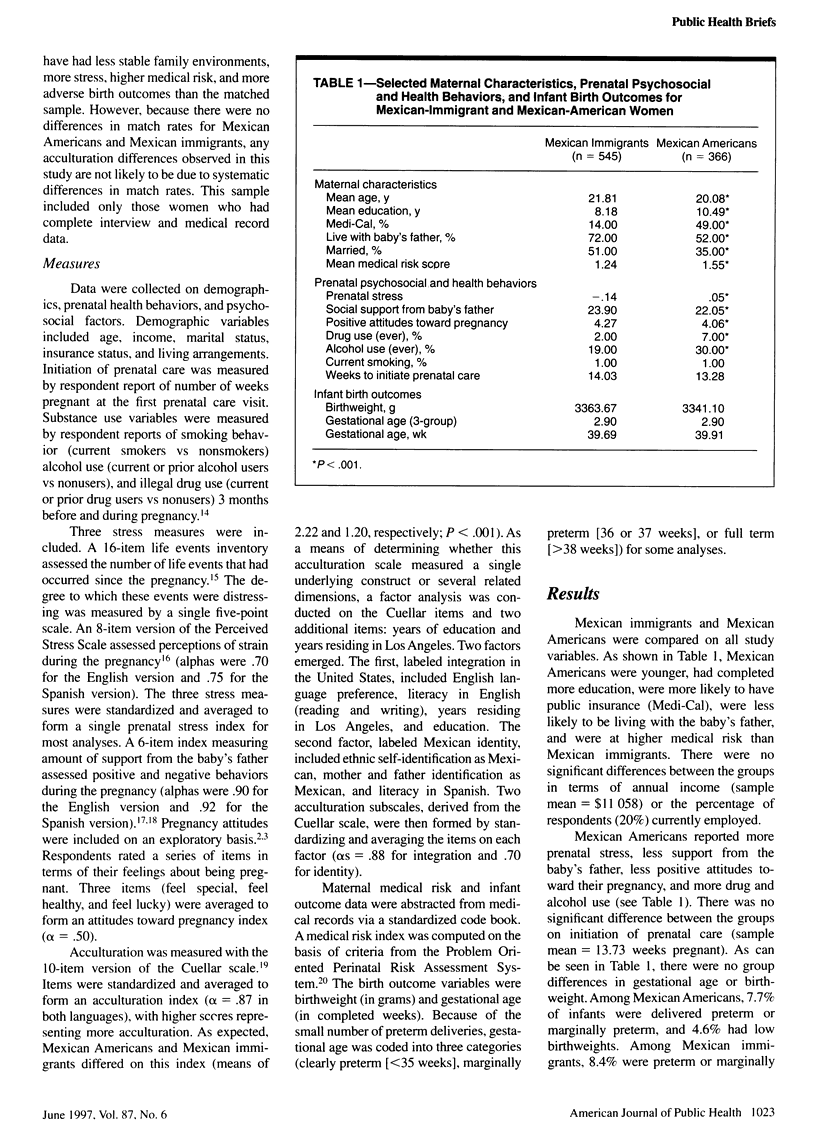
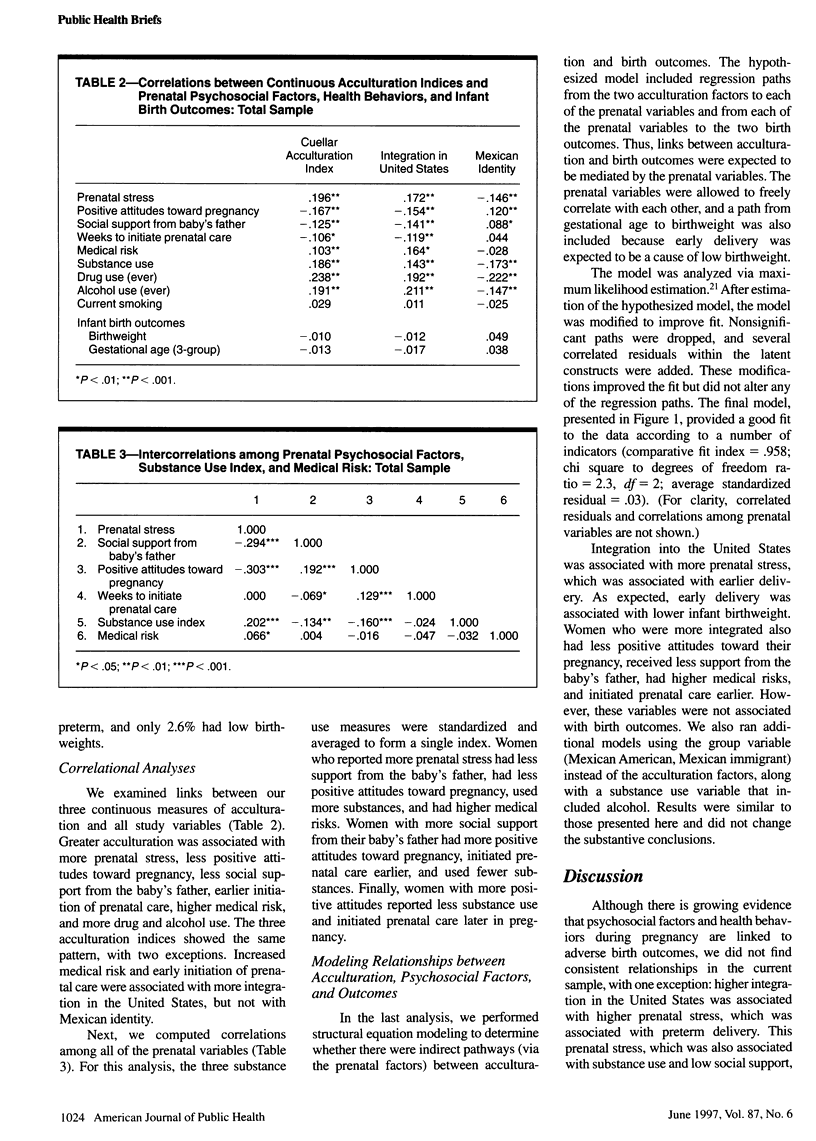
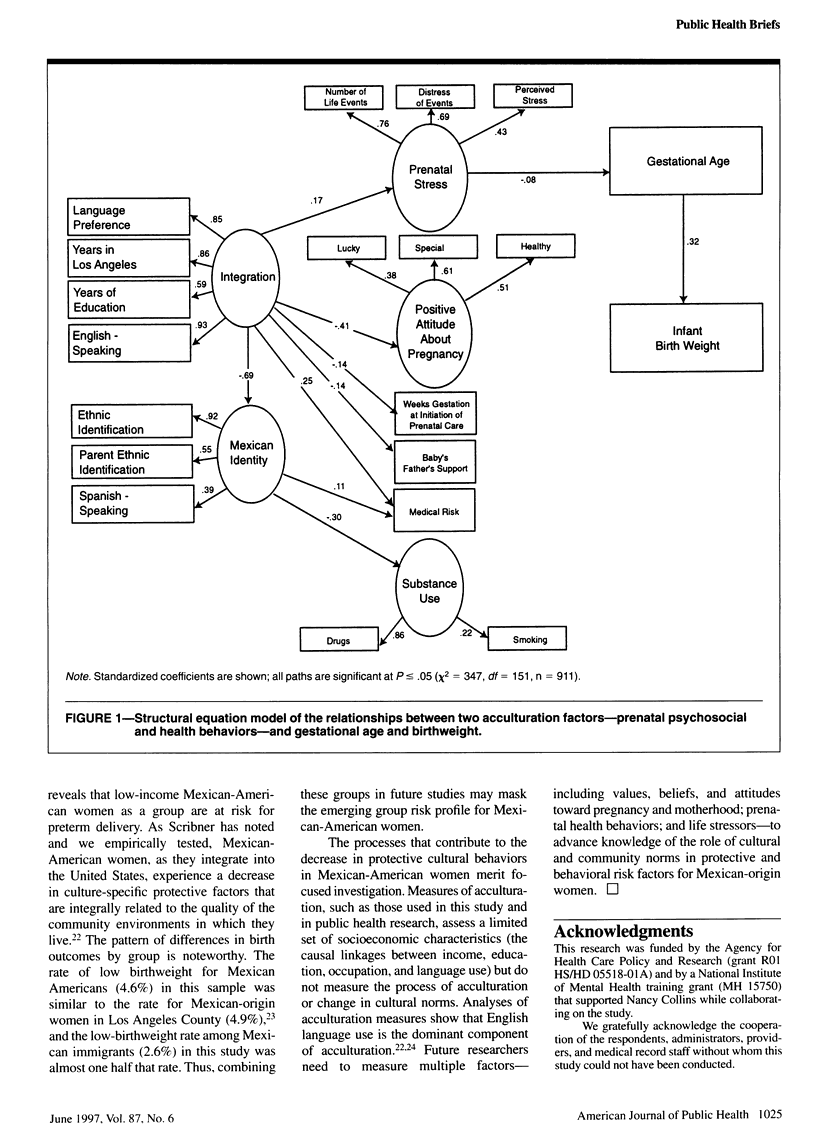
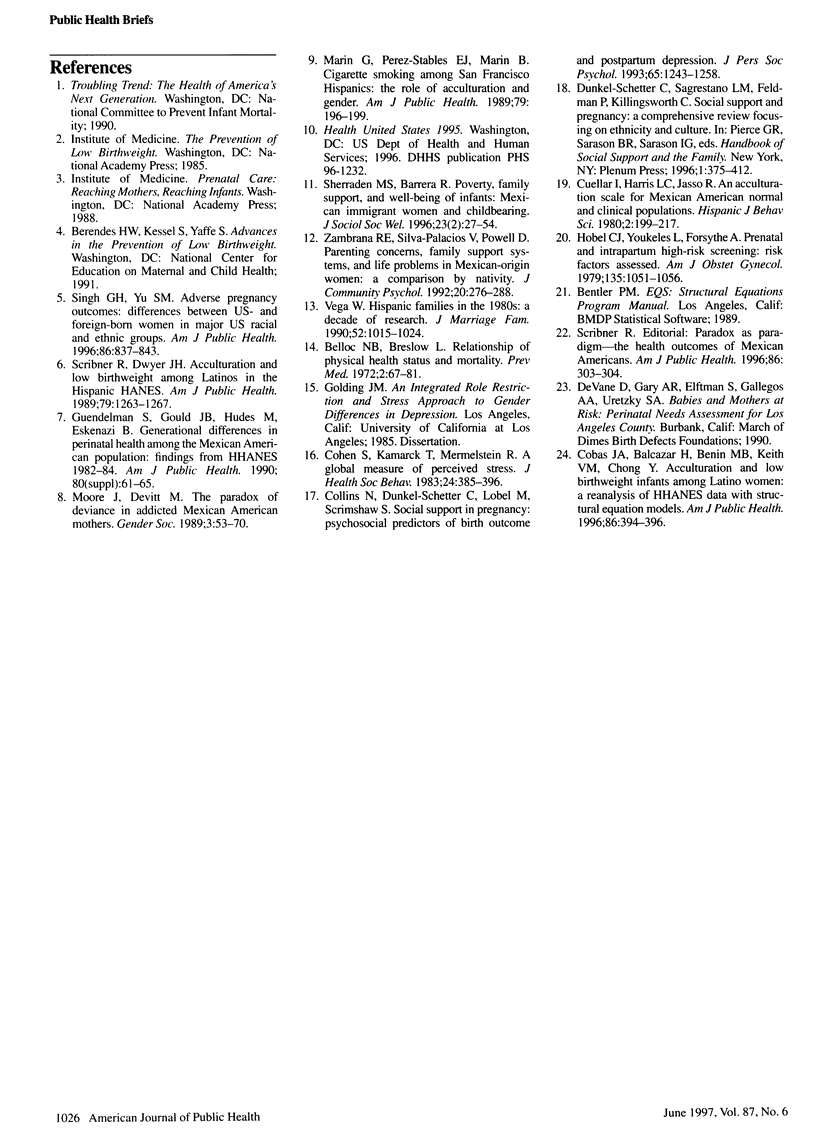
Selected References
These references are in PubMed. This may not be the complete list of references from this article.
- Belloc N. B. Relationship of health practices and mortality. Prev Med. 1973 Mar;2(1):67–81. doi: 10.1016/0091-7435(73)90009-1. [DOI] [PubMed] [Google Scholar]
- Cobas J. A., Balcazar H., Benin M. B., Keith V. M., Chong Y. Acculturation and low-birthweight infants among Latino women: a reanalysis of HHANES data with structural equation models. Am J Public Health. 1996 Mar;86(3):394–396. doi: 10.2105/ajph.86.3.394. [DOI] [PMC free article] [PubMed] [Google Scholar]
- Cohen S., Kamarck T., Mermelstein R. A global measure of perceived stress. J Health Soc Behav. 1983 Dec;24(4):385–396. [PubMed] [Google Scholar]
- Collins N. L., Dunkel-Schetter C., Lobel M., Scrimshaw S. C. Social support in pregnancy: psychosocial correlates of birth outcomes and postpartum depression. J Pers Soc Psychol. 1993 Dec;65(6):1243–1258. doi: 10.1037//0022-3514.65.6.1243. [DOI] [PubMed] [Google Scholar]
- Guendelman S., Gould J. B., Hudes M., Eskenazi B. Generational differences in perinatal health among the Mexican American population: findings from HHANES 1982-84. Am J Public Health. 1990 Dec;80 (Suppl):61–65. doi: 10.2105/ajph.80.suppl.61. [DOI] [PMC free article] [PubMed] [Google Scholar]
- Hobel C. J., Youkeles L., Forsythe A. Prenatal and intrapartum high-risk screening. II. Risk factors reassessed. Am J Obstet Gynecol. 1979 Dec 15;135(8):1051–1056. doi: 10.1016/0002-9378(79)90735-x. [DOI] [PubMed] [Google Scholar]
- Marin G., Perez-Stable E. J., Marin B. V. Cigarette smoking among San Francisco Hispanics: the role of acculturation and gender. Am J Public Health. 1989 Feb;79(2):196–198. doi: 10.2105/ajph.79.2.196. [DOI] [PMC free article] [PubMed] [Google Scholar]
- Scribner R., Dwyer J. H. Acculturation and low birthweight among Latinos in the Hispanic HANES. Am J Public Health. 1989 Sep;79(9):1263–1267. doi: 10.2105/ajph.79.9.1263. [DOI] [PMC free article] [PubMed] [Google Scholar]
- Scribner R. Paradox as paradigm--the health outcomes of Mexican Americans. Am J Public Health. 1996 Mar;86(3):303–305. doi: 10.2105/ajph.86.3.303. [DOI] [PMC free article] [PubMed] [Google Scholar]
- Singh G. K., Yu S. M. Adverse pregnancy outcomes: differences between US- and foreign-born women in major US racial and ethnic groups. Am J Public Health. 1996 Jun;86(6):837–843. doi: 10.2105/ajph.86.6.837. [DOI] [PMC free article] [PubMed] [Google Scholar]



